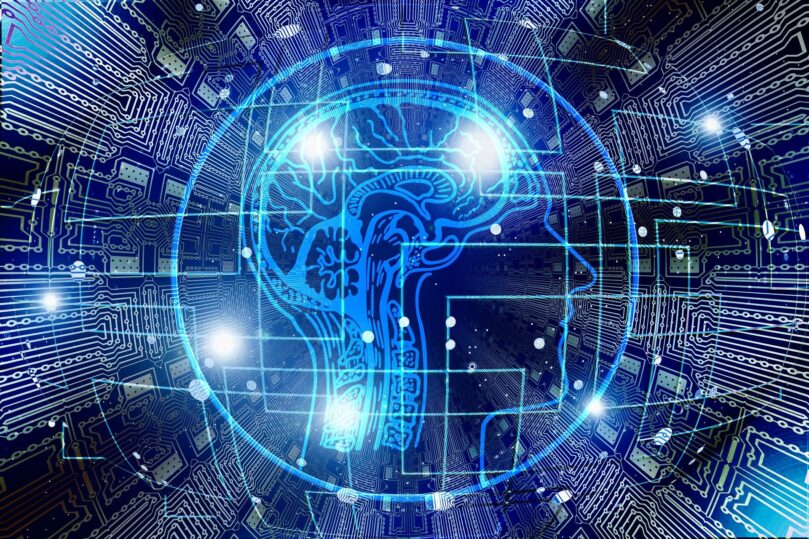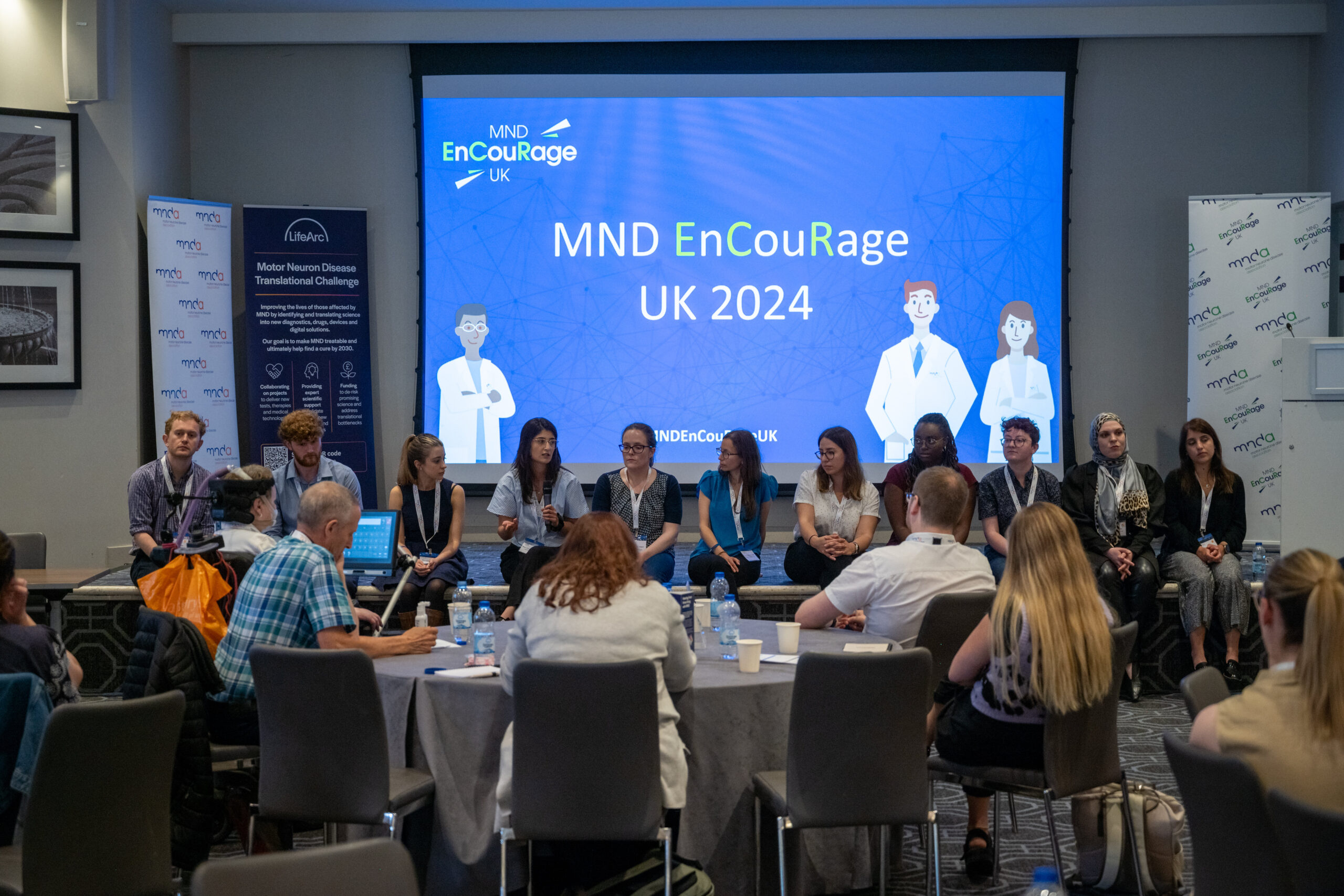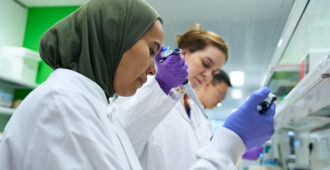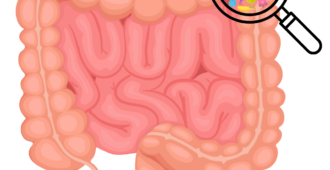“Go set the world on fire!”
This is how Steve Gleason, a former professional American football player who is now living with ALS, finished his talk to 1,500 delegates at the virtual 32nd International Symposium on ALS/MND last December. Whilst using his speech to inspire researchers, clinicians, and healthcare professionals to do even more in their fight to treat and ultimately cure ALS. He also explained how technology can play a vital role in improving quality of life, saying that “most of what ALS takes away technology can give back”.
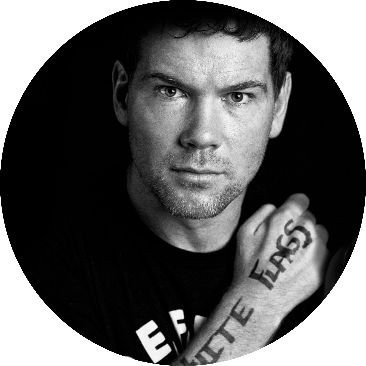
Since his diagnosis in 2011, Steve’s mission has been to empower people living with ALS by creating innovative technology which can allow people living with ALS to lead productive and purposeful lives. This led to Steve and his wife, Michel, to set up “Team Gleason” with this goal at the forefront. Over the years, Team Gleason has partnered with technology leaders, including Microsoft, Google and Comcast, to develop more powerful and innovative technology for people who are physically disabled. These partnerships have led to technology such as the Xfinity Adaptive Remote, a web-based remote control allowing people with disabilities to control their televisions. The remote, which was developed in partnership with Comcast, works on computers, smartphones and tablets and also with assistive devices such as eye tracking technology.
Project Euphonia, a collaborative project between Team Gleason, Google, the MND Association and others, aims to help people with atypical speech to be better understood. The rise in smart speakers and assistants, such as Google Assistant, has highlighted how useful these tools can be but also how frustrating they can be for someone with impaired or atypical speech. This project focuses on the analysis of speech recordings to better train speech recognition models. Anyone who has “speech that may be difficult to understand” is able to take part to help increase the number of examples of atypical speech these speech recognition algorithms are exposed to. Google are still looking for people who have a voice that may be difficult to understand, such as those living with ALS, to take part and record phrases. You can find out more here.
On the back of Project Euphonia, Google has introduced Project Relate, an app that can be used as a voice assistant for people with speech impairments. This project involves a beta app (experimental apps that users can try) which can be used as a voice assistant for people with speech impairments. The app has three features; transcribe, repeat and assistant. The transcribe feature transcribes in real time what the person is saying, the repeat feature repeats what the user said using a “clear synthesised voice” and the app also connects with Google Assistant. The app is currently only being tested in Australia, Canada, New Zealand, and the United States.
Another project to come out of Project Euphonia, is Project Activate. Whilst both Euphonia and Relate have been looking into helping people with atypical speech, Project Activate is for people who are unable to speak and cannot use their hands, including people living with ALS. The android app, which is available to download from the Google Play Store, allows users to “activate customised pre-set communications by making facial gestures”. This means that the user can set a specific facial gesture, such as raising an eyebrow, to a specific communication, like sending a text.
Whilst Steve discussed how these projects and future innovations in technology can be powerful for people living with ALS, at the 32nd International Symposium on ALS/MND, he also made sure to highlight the importance of “keep[ing] the humanity in innovation”. An important reminder for the ALS research community but a necessity for people living with ALS. You can hear Steve’s speech in full below.
With Steve’s rallying call that “technology must connect us with the ones we love” still ringing in the ALS/MND research communities’ ears, Dell Technologies, Intel, Rolls Royce and the MND Association have formed a partnership which echoes this call. The partnership resulted in the recent release of “I will always be me” – the first e-book that banks your voice. As more than 80% of people living with MND develop difficulties with speech, the e-book is designed to help people with MND keep their voice, make sure they always sound like themselves and maintain the ability to communicate with the people they love.
I’m constantly amazed at the humanity that can be unlocked with technology. When we come together with a common goal, belief or passion, we can have a lasting impact – not only for individuals with MND, but for the world at large
Liz Matthews
Senior Vice President of Dell Technologies Global Brand & Creative
The e-book involves reading a short story out loud, which takes around 15 – 30 minutes and is designed to be a shared experience for family and friends to be a part of. Once the story has been read, the recording is then uploaded and transformed into a digital voice by SpeakUnique, which can then be used with communication devices when needed. Anyone living with MND in England, Wales and Northern Ireland can take part with funding provided by the MND Association, thanks to donations from Dell Technologies and Intel. People living with MND in Scotland can also take part, with funding provided by MND Scotland.
There is no better way to end this blog than through the words of Steve, who has inspired and helped countless numbers of people living with ALS through Team Gleason. In the final part of his speech he said “[…] each and every person here can find ways to play a role in exploring and producing solutions to strengthen our humanity. Today it might be a hare-brained pipe dream but tomorrow it might revolutionise our world and if not the entire world, the world for someone.”

